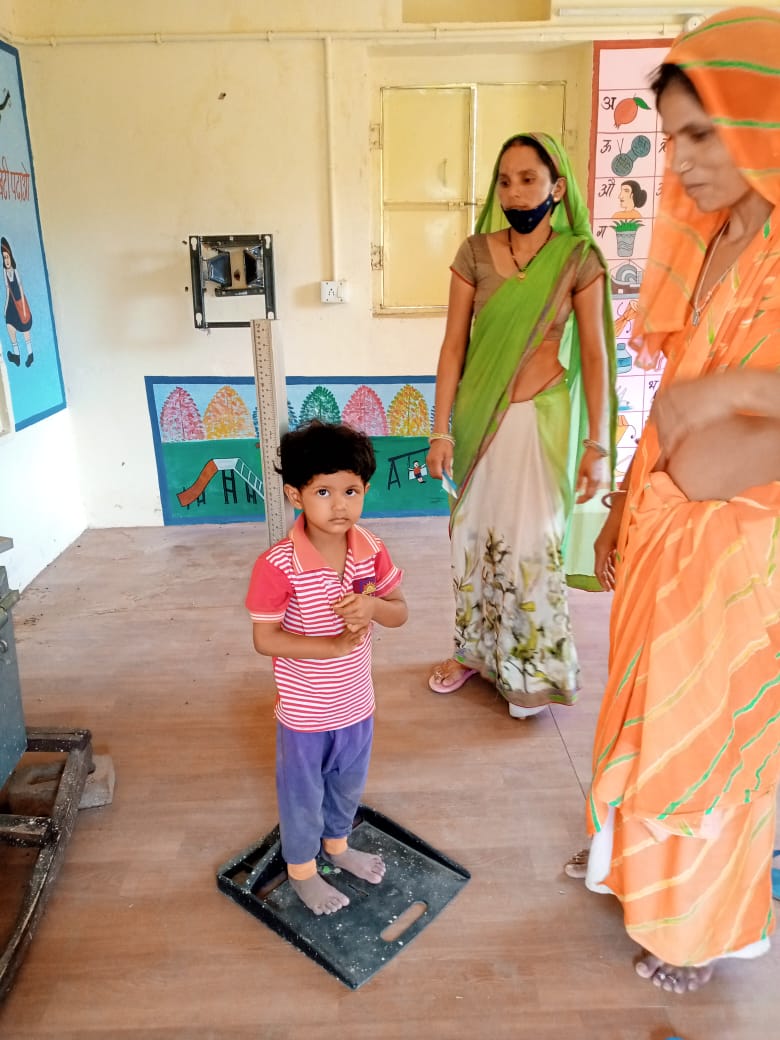Nandghar: Bolstering health and nutrition of future generations

Humana People to People India is implementing the Nandghar Project in partnership with the Vedanta Foundation in four states of India – Rajasthan, Chhattisgarh, Jharkhand and Uttar Pradesh with an aim to provide early childhood development support to 18,000 children in 0-6 years age group and health and nutrition services to 36,000 pregnant women and mothers.
The Projects provides the infrastructure in the Anganwadis/Nandghars and provides requisite training to service providers at these institutions to ensure early childcare & education and proper nutrition of children and mothers.
One of the key deliverables of the project is to support the ASHA workers to regularly monitor the height, weight and nutrition levels of the children coming to the Anganwadi Centres.
In Dausa, Rajasthan, HPPI is responsible for the Operations and Maintenance of 99 Nandghars.
Due to COVID-19 restrictions, children are no longer provided with hot meals in a conventional manner. However, to ensure that their nutrition level is not impacted, HPPI facilitates monthly ‘Take-Home Rations (THR)’ sessions for the Anganwadi children, pregnant women and lactating mothers. As of June 2021, every child under the Nandghar Project was provided with 1.25 kgs of wheat, 1.25 kgs of rice and 2kgs pulses. Similarly, pregnant and lactating mothers were also provided with 1.5kgs of wheat, 3kgs of pulses and 1.5 kgs of rice.
The THR provided to the beneficiaries is checked for its quality and procured from Government authorised centres to ensure the highest nutritional levels.
Under the Nandghar Project in Dausa, HPPI is now monitoring the nutrition and education of 1,104 children aged 0-6 months, 4,644 children aged 7 months to 3 years, 2,416 children aged 3-6 years, 1,160 pregnant women, and 1,106 lactating mothers. Since the implementation of the Project, no child has been found malnourished in the area. At the same time, family members of children and mothers who have received rations through the Project have stated that the sealed ration packages they now receive are of higher quality than the loose and unequally distributed rations they previously got.
